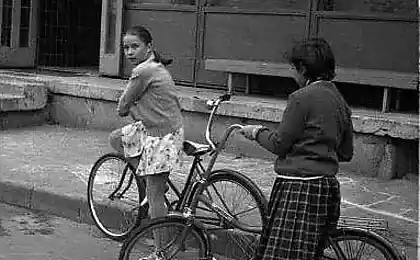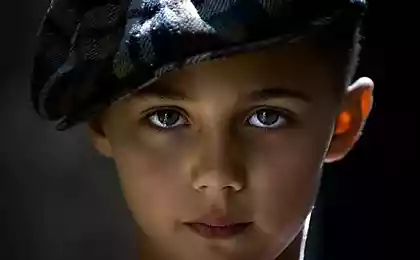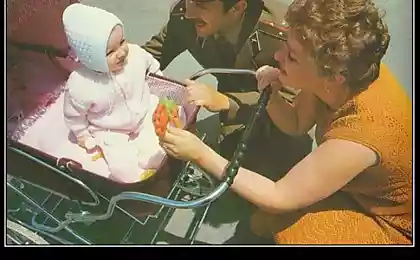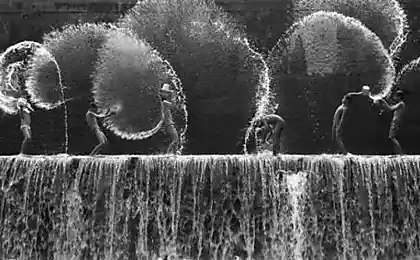254
Injuries of upbringing that clipped the wings of Soviet children
It's no secret that Soviet education It's very different than it is now. Of course, there are many positives to remember, but in general, parents and teachers were much stricter. Sometimes so much so that people brought up by those methods, all their lives trying to get rid of complexes and psychotraumas.
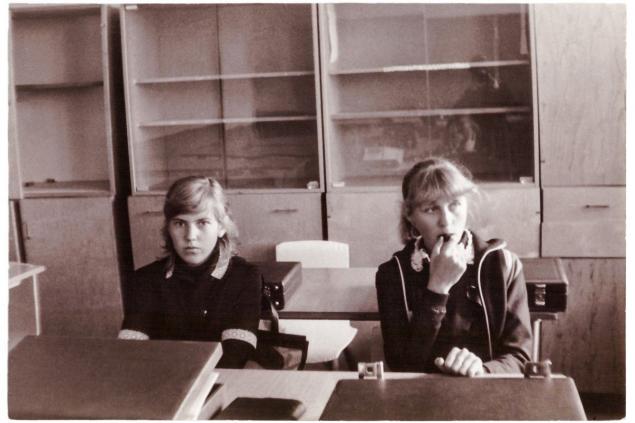
My sister works as a psychologist. She doesn't say much about her practice - it can't be done. But sometimes they can share their observations in general. So, people brought up in the USSR and a little later, in the 80-90s, come with very similar requests and psychotraumas. From zero self-esteem to the inability to build relationships with people. Many aspects of our personality are shaped in childhood, so parenting plays a key role.

It should also be noted that during the Soviet Union Not only mother and father, but also the state.. According to the sister, the following moments were the most traumatic for the children of the time.
Shame education Unfortunately, One of the main tools of education was shame. This method was used by both parents and teachers. All right, if you're embarrassed for serious misconduct. But no, this method was practiced at every opportunity.
I remember when I was in class two or three, my first teacher used this method. She lined up students who were bad at reading. Then she took the poor fellow to the rest of the classes, saying, “Look, they can’t read.” I was lucky that I was not one of those students. Here's my childhood friend. I still remember that horrible experience..

Just imagine how defenseless and humiliated a child feels when shamed. But for some reason, it was thought that this was normal and even useful. In fact, under the influence of emotions, the cognitive and thought processes of the child are turned off, so that he does not learn any lesson from this. He gets hurt. Because of such techniques, children grow up with the feeling that they are worse than others and they have no place in society.

I have often heard this phrase from my parents: "What will people say?" or "People will laugh at you.". I am still trying to overcome complexes, learn not to depend on someone else’s opinion and not be afraid of judgment.
Slapping a child with a belt was considered no less effective measure of upbringing. Not only were the belts used, but everything that came to hand. I remember once for bad behavior. snatched off with a carpet-cutter. It was almost an isolated incident, but I remember it for life.
While not all children of the USSR fully tasted physical punishment, psychological pressure was ubiquitous. In the heads of children hammered the principle “There is no word ‘I don’t want’, there is a word ‘I should’.”. You have a duty to your parents, a duty to your country, and so on. And then these children grew up and began to live not for themselves, but for someone. And do what they really don't want to do. But you have to.
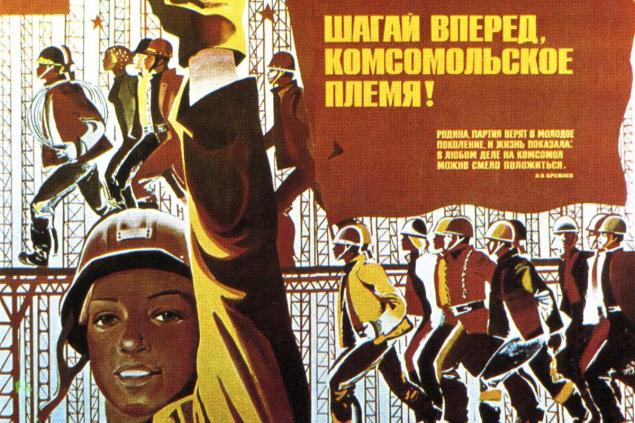
A phrase. “You won’t leave the table until you finish.” It's worth it! I remember her very well. The smell of some of the dishes served in kindergarten makes me immediately sick. And that's decades later. Not because they taste bad. Because I was forced to eat them without even paying attention to my gag reflex. All I had to do was water the plate with tears. And no one cared about the desires of the child - he should, he has a schedule.
Comparing a child with others: "Look how beautiful Tanya writes." What kind of doodle do you have? is another childhood memory. I remember how I was. They were compared to other children literally.Every step of the way. And I tried to do as they did. Because my mom said it was better. Only in adulthood, this comparison of oneself with others on a reflex level does not allow a normal life. You keep digging into yourself, and all the time it seems that other people are smarter, more beautiful, more successful. Thank you, Soviet education.

Many children have experienced a functional relationship rather than a healthy connection with their parents. If he brought a fiver and behaved at school, well done, he deserved praise. But if suddenly a three or two, and even fought with someone – stand in the corner. There was no room for sentiment and heart-to-heart conversation.
My parents were too busy surviving. And they had a severe education. There was no resource to help build a healthy relationship with a child. They didn’t know or understand what was best. They had no idea they were hurting us. If they did, they would probably behave differently.
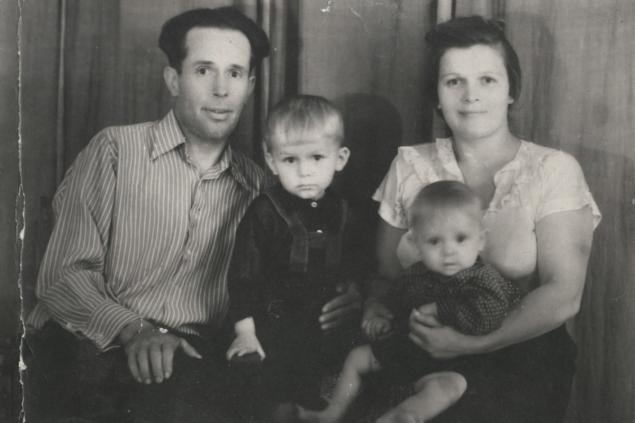
If we talk about emotions, their free expression was not encouraged at all. I had to act like a comfortable kid.Who doesn’t scream, run, or laugh for no reason. Anger was a big deal. One seat belt, for example. The fact that boys are not supposed to cry was well known to everyone without exception.
Feeling and expressing these emotions is completely normal. And not just normal, it's vital, it's right, it's right. The key to a healthy psyche and proper development of the child.

Of course, there will be those who will shout “nonsense!” Lies! and to prove that Soviet education was correct, that in those days everyone was good, no one beat or shamed anyone. But somehow. The vast majority of friends and acquaintances raised in the USSR, confirm the above and 5 years in a row go to the psychologist, raking up the trauma of childhood. Coincidence? Hardly.
This article is not an attempt to prove that everything was bad in the Soviet Union. This is a reminder of mistakes that should not be repeated. In every age there is something good and something bad that belongs in the past. Only the best should be preserved and carried forward. Each generation has its own problems, its own injuries.

My sister works as a psychologist. She doesn't say much about her practice - it can't be done. But sometimes they can share their observations in general. So, people brought up in the USSR and a little later, in the 80-90s, come with very similar requests and psychotraumas. From zero self-esteem to the inability to build relationships with people. Many aspects of our personality are shaped in childhood, so parenting plays a key role.

It should also be noted that during the Soviet Union Not only mother and father, but also the state.. According to the sister, the following moments were the most traumatic for the children of the time.
Shame education Unfortunately, One of the main tools of education was shame. This method was used by both parents and teachers. All right, if you're embarrassed for serious misconduct. But no, this method was practiced at every opportunity.
I remember when I was in class two or three, my first teacher used this method. She lined up students who were bad at reading. Then she took the poor fellow to the rest of the classes, saying, “Look, they can’t read.” I was lucky that I was not one of those students. Here's my childhood friend. I still remember that horrible experience..

Just imagine how defenseless and humiliated a child feels when shamed. But for some reason, it was thought that this was normal and even useful. In fact, under the influence of emotions, the cognitive and thought processes of the child are turned off, so that he does not learn any lesson from this. He gets hurt. Because of such techniques, children grow up with the feeling that they are worse than others and they have no place in society.

I have often heard this phrase from my parents: "What will people say?" or "People will laugh at you.". I am still trying to overcome complexes, learn not to depend on someone else’s opinion and not be afraid of judgment.
Slapping a child with a belt was considered no less effective measure of upbringing. Not only were the belts used, but everything that came to hand. I remember once for bad behavior. snatched off with a carpet-cutter. It was almost an isolated incident, but I remember it for life.
While not all children of the USSR fully tasted physical punishment, psychological pressure was ubiquitous. In the heads of children hammered the principle “There is no word ‘I don’t want’, there is a word ‘I should’.”. You have a duty to your parents, a duty to your country, and so on. And then these children grew up and began to live not for themselves, but for someone. And do what they really don't want to do. But you have to.

A phrase. “You won’t leave the table until you finish.” It's worth it! I remember her very well. The smell of some of the dishes served in kindergarten makes me immediately sick. And that's decades later. Not because they taste bad. Because I was forced to eat them without even paying attention to my gag reflex. All I had to do was water the plate with tears. And no one cared about the desires of the child - he should, he has a schedule.
Comparing a child with others: "Look how beautiful Tanya writes." What kind of doodle do you have? is another childhood memory. I remember how I was. They were compared to other children literally.Every step of the way. And I tried to do as they did. Because my mom said it was better. Only in adulthood, this comparison of oneself with others on a reflex level does not allow a normal life. You keep digging into yourself, and all the time it seems that other people are smarter, more beautiful, more successful. Thank you, Soviet education.

Many children have experienced a functional relationship rather than a healthy connection with their parents. If he brought a fiver and behaved at school, well done, he deserved praise. But if suddenly a three or two, and even fought with someone – stand in the corner. There was no room for sentiment and heart-to-heart conversation.
My parents were too busy surviving. And they had a severe education. There was no resource to help build a healthy relationship with a child. They didn’t know or understand what was best. They had no idea they were hurting us. If they did, they would probably behave differently.

If we talk about emotions, their free expression was not encouraged at all. I had to act like a comfortable kid.Who doesn’t scream, run, or laugh for no reason. Anger was a big deal. One seat belt, for example. The fact that boys are not supposed to cry was well known to everyone without exception.
Feeling and expressing these emotions is completely normal. And not just normal, it's vital, it's right, it's right. The key to a healthy psyche and proper development of the child.

Of course, there will be those who will shout “nonsense!” Lies! and to prove that Soviet education was correct, that in those days everyone was good, no one beat or shamed anyone. But somehow. The vast majority of friends and acquaintances raised in the USSR, confirm the above and 5 years in a row go to the psychologist, raking up the trauma of childhood. Coincidence? Hardly.
This article is not an attempt to prove that everything was bad in the Soviet Union. This is a reminder of mistakes that should not be repeated. In every age there is something good and something bad that belongs in the past. Only the best should be preserved and carried forward. Each generation has its own problems, its own injuries.
Magic of the folk song of Ukrainians and why Manizha took ninth place at Eurovision
There was my grandmother's chest in the attic, she always locked it, and we didn't know what it was.




